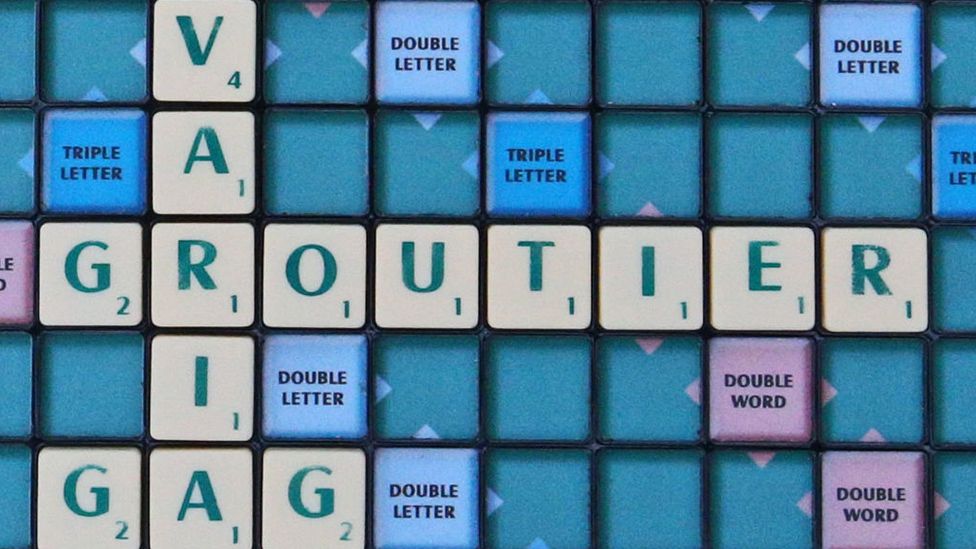News
Team Nigeria holding strong at World Scrabble Championship

Members of Team Nigeria at the ongoing Scrabble World Championship in Las Vegas, Nevada, U.S. are giving a good account of the country as the competition enters day three on Tuesday.
A member of the Team Nigeria, Wellington Jighere, with 14 wins, is running a neck and neck race with USA’s Will Anderson, who is topping the chart after day two for a higher cumulative.
Jighere, also a former World Champion, is occupying the second spot, while Nsikakabasi Etim, also a member of the Team Nigeria, recorded 11 wins in 16 games.
However, the duo, who are in the top ten are representing Nigeria which has less players, compared with the host, America.
Other plays include Alec Sjoholm of U.s.; England’s Harshan Lamabadusuriya; Thacha Koowirat from Thailand.
Nigeria born Samson Okosagah, playing for U.S., and Russell Honeybun of Australia are all on 12 wins each, but separated by cumulative points.
The second chasing pack has Canada’s Matthew Tunnicliffe; Conrad Bassett-Bouchard of the United States; Nigeria’s Nsikak Solomon Etim, Chris Lipe of United States.
Also, Andrew Fisher from Australia and Canada’s Joshua Castellano have 11 victories, each.
Other members of Team Nigeria include Emmanuel Ofidi, Olatunde Oduwole, Osahon Omosefe and Temituoyo Mayuku are closing down on the board leaders with 10 wins, respectively.
Olawale Fashina, Dipo Akanbi, Dennis Ikekeregor and Enoch Nwali are jamming back and hard on nine wins.
Current African Champion and King of Governor Diri National Championship, Enoch Nwali, who started day two at number 96 ended the day at 34th spot after recording six wins out of eight games played.
The Health Education Student of the University of Lagos is now on nine wins overall.
Olobatoke Aka, President of Nigeria Scrabble Federation (NSF), also the leader of Team Nigeria delegation said he was very confident that Day three of the Championship would push more Nigerians toward the top end.
“It’s tough out there, the positions at the end of today’s games will determine the outcome.
“We shall know if we will have a shot at the World Championship title,” he said.
The News Agency of Nigeria (NAN) reports that these are the Africa’s best individuals standing after day two.
134 players drawn from 29 countries in Africa, Asia, Europe, Oceania and North America are participating in the Championship.
News
Woman killed while crossing road in Anambra

The Federal Road Safety Corps (FRSC), Anambra State Sector Command, has confirmed the death of a woman in an accident at Okpoko Market on the Asaba-Onitsha Road.
The Sector Commander, Mr Adeoye Irelewuyi, who confirmed the accident to journalists in Awka on Thursday, said that the woman was hit while she was crossing the road.
He said that the accident, which occurred on Wednesday, involved a commercial tow truck with registration number XA550BMA.
“Eyewitness report reaching us indicates that the truck was towing a vehicle in an uncontrollable speed along the axis.
“The vehicle that was being towed got detached from the tow truck.
“It hit and killed a female adult, who was said to be crossing the road, while the tow truck continued its movement.
“FRSC rescue team came to the scene and took the woman to Toronto Hospital, Onitsha, where she was confirmed dead and her body deposited at the hospital’s mortuary,” he said.
While sympathising with the family of the dead, the sector commander urged motorists, especially tow truck drivers, to exercise a high level of professionalism.
He also urged the drivers to always use standard equipment and avoid speeding.
News
LASG’s maize palliative impactful, says poultry association chair

The Chairman, Poultry Association of Nigeria (PAN), Lagos State Chapter, Mr Mojeed Iyiola, said the state government’s maize palliative to members of the association made a positive impact on the sector.
Iyiola said this in an interview with the News Agency of Nigeria (NAN) on Thursday in Lagos.
“We received about 150,000 tons of maize in February from the Lagos State government as palliative to cushion the effect of high feed prices.
“The major benefit of the palliative is that it actually cushioned the cost of production for most poultry farmers in the state.
“The palliative was beneficial as it made the cost of some poultry produce, especially eggs to drop,” Iyiola said.
He noted that prior to the palliative, a crate of egg was sold between N3,500 and N3,700 at the farm gate, but after the palliative, it now sells between N3,200 and N3,400.
According to the PAN chair, retailers and middlemen who sell from N3,800 to N4,200 do that for their personal gain.
“We have urged our members to sell their eggs at reasonable prices following the receipt of the palliative from the government.
“We appreciate the Lagos State government for the palliative but we also urge the federal government to do likewise, to further reduce the cost of production in the sector.
“This will consequently lead to drop in the prices of all poultry produce across board,” he said.
He said the palliative was shared among financial members of the association at no extra cost.
“As an association we shared the grains equally across PAN’s eight zones in the state equally. We also mandated each zone not the sell even a grain of the maize.
“We, however, considered new poultry farmers who wanted to the join the association as beneficiaries of the palliative,” said Iyiola.
He noted that through the palliative, more poultry farmers were recruited into the association.
“The maize was shared only to poultry farmers and not feed millers, it is the major component of poultry feed formulation,” he said.










